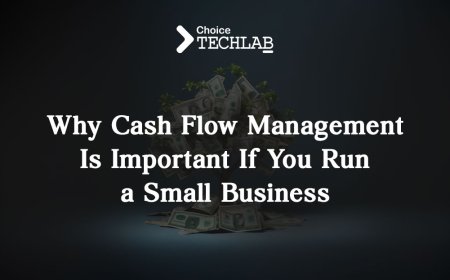B2B vs B2C: How a Digital Marketing Agency in Dubai Customizes Strategies for Different Models
Explore how digital marketing strategies differ for B2B and B2C businesses—across funnels, messaging, and platforms.

In a diverse market like the UAE, businesses face vastly different marketing challenges depending on whether they serve other businesses (B2B) or individual consumers (B2C). A Digital Marketing Agency in Dubai understands these distinctions and crafts tailored strategies to help each business type reach the right audience with the right messageat the right time.
This article explores how marketing agencies differentiate their approach across B2B and B2C sectors by adjusting funnel design, communication styles, and platform choices.
1. Different Sales Cycles, Different Funnels
B2B: Longer, Trust-Driven Funnels
Business-to-business buyers rarely make impulsive decisions. The B2B funnel typically includes several stakeholders, higher price points, and extended research phases. Agencies create multi-touch campaigns with gated content, email nurturing, webinars, and whitepapers that align with each decision stageawareness, consideration, and evaluation.
B2C: Short, Emotion-Driven Journeys
Consumers often make faster, emotionally influenced decisions. A B2C funnel is usually shorter and focuses heavily on attention-grabbing visuals, urgency, and seamless shopping experiences. Campaigns are optimized for immediate clicks, conversions, and repeat purchases through retargeting and persuasive CTAs.
2. Messaging Styles and Content Approach
B2B: Educational, Value-Focused Messaging
B2B marketing relies on positioning a company as an industry authority. Messaging is logical, benefits-focused, and often data-backed. Agencies create blog content, case studies, solution briefs, and technical explainers to influence decision-makers and address business pain points.
B2C: Relatable, Lifestyle-Driven Content
In B2C marketing, messaging connects with the customers identity and lifestyle. Whether selling fashion, electronics, or wellness products, agencies focus on creating engaging stories, visuals, and promotions that appeal to emotion and aspiration.
3. Platform Preferences by Audience
B2B: LinkedIn, Email, and Search
LinkedIn is the cornerstone of B2B marketing, ideal for thought leadership and lead generation. Email marketing remains highly effective for nurturing leads, while Google Search is vital for capturing high-intent buyers looking for solutions.
B2C: Instagram, TikTok, Facebook, YouTube
B2C marketing leans heavily on visual and video-based platforms. Instagram and TikTok dominate in industries like beauty, fashion, and food, while Facebook and YouTube continue to drive engagement across demographics. Agencies use influencer collaborations, product demos, and storytelling reels to build brand love.
4. Ad Targeting and Budget Strategy
B2B: Account-Based Marketing (ABM)
Instead of broad targeting, B2B strategies focus on precision. Agencies often use ABM tacticsidentifying high-value companies and running customized ad campaigns targeting specific decision-makers within those firms.
B2C: Broad Segmentation + Retargeting
B2C advertising targets consumer interests, behaviors, and demographics at scale. Budget allocation often goes toward wide reach, with a strong emphasis on retargeting for cart abandonment and cross-selling.
5. KPIs and Success Metrics
B2B Metrics:
-
Marketing Qualified Leads (MQLs)
-
Sales Qualified Leads (SQLs)
-
Customer Acquisition Cost (CAC)
-
Pipeline Influence
B2C Metrics:
-
Return on Ad Spend (ROAS)
-
Customer Lifetime Value (CLV)
-
Conversion Rate
-
Engagement Rate
Agencies tailor their reporting dashboards depending on whether the goal is pipeline velocity or daily revenue growth.
Conclusion
While the core principles of digital marketing remain the same, the execution varies dramatically between B2B and B2C models. Understanding these nuances is key to building impactful strategies that connect with the right audience and convert attention into results.
Whether you're targeting enterprise buyers or end consumers, a Digital Marketing Agency in Dubai can customize your campaigns for maximum impact, ensuring every ad, email, or post drives measurable growth in the UAEs competitive digital landscape.








































